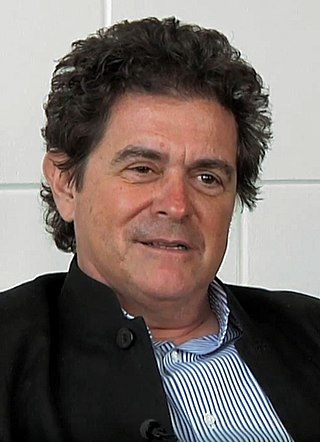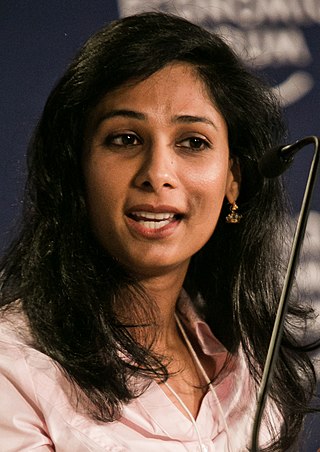
The International Monetary Fund (IMF) is a major financial agency of the United Nations, and an international financial institution, headquartered in Washington, D.C., consisting of 190 countries. Its stated mission is "working to foster global monetary cooperation, secure financial stability, facilitate international trade, promote high employment and sustainable economic growth, and reduce poverty around the world." Formed in 1944, started on 27 December 1945, at the Bretton Woods Conference primarily by the ideas of Harry Dexter White and John Maynard Keynes, it came into formal existence in 1945 with 29 member countries and the goal of reconstructing the international monetary system. It now plays a central role in the management of balance of payments difficulties and international financial crises. Countries contribute funds to a pool through a quota system from which countries experiencing balance of payments problems can borrow money. As of 2016, the fund had XDR 477 billion. The IMF is regarded as the global lender of last resort.

Macroeconomics is a branch of economics that deals with the performance, structure, behavior, and decision-making of an economy as a whole. For example, using interest rates, taxes, and government spending to regulate an economy's growth and stability. This includes regional, national, and global economies.

New Keynesian economics is a school of macroeconomics that strives to provide microeconomic foundations for Keynesian economics. It developed partly as a response to criticisms of Keynesian macroeconomics by adherents of new classical macroeconomics.

A macroeconomic model is an analytical tool designed to describe the operation of the problems of economy of a country or a region. These models are usually designed to examine the comparative statics and dynamics of aggregate quantities such as the total amount of goods and services produced, total income earned, the level of employment of productive resources, and the level of prices.
International economics is concerned with the effects upon economic activity from international differences in productive resources and consumer preferences and the international institutions that affect them. It seeks to explain the patterns and consequences of transactions and interactions between the inhabitants of different countries, including trade, investment and transaction.

Olivier Jean Blanchard is a French economist and professor who is a senior fellow at the Peterson Institute for International Economics. He was the chief economist at the International Monetary Fund from September 1, 2008, to September 8, 2015. Blanchard was appointed to the position under the tenure of Dominique Strauss-Kahn; he was succeeded by Maurice Obstfeld. He is also a Robert M. Solow Professor of Economics emeritus at the Massachusetts Institute of Technology (MIT). According to IDEAS/RePEc, he is one of the most cited economists in the world.

Alberto Francesco Alesina was an Italian political economist. Described as one of the leading political economists of his generation, he published many influential works in both the economics and political science research literature.

Guillermo Antonio Calvo is an Argentine-American economist who is director of Columbia University's mid-career Program in Economic Policy Management in their School of International and Public Affairs (SIPA).

José De Gregorio Rebeco is a Chilean economist, academic, researcher, consultant and politician. He has been the Governor of the Central Bank of Chile, Minister of the Economy, Mining and Energy during the administration of Ricardo Lagos and is currently the Dean of the School of Economics and Business of the Universidad de Chile. He is also a nonresident Senior Fellow at the Peterson Institute for International Economics.

Jordi Galí is a Spanish macroeconomist who is regarded as one of the main figures in New Keynesian macroeconomics today. He is currently the director of the Centre de Recerca en Economia Internacional at Universitat Pompeu Fabra and a Research Professor at the Barcelona Graduate School of Economics. After obtaining his doctorate from MIT in 1989 under the supervision of Olivier Blanchard, he held faculty positions at Columbia University and New York University before moving to Barcelona.
The International Review of Social History (IRSH) is a scholarly journal founded, in its current format, in 1956, by the International Institute of Social History (IISH). The current academic journal revived an earlier publication by the same name issued by IISH from 1936 until its termination due to the approach of World War II in 1938.

Global Environmental Politics (GEP) is a quarterly peer-reviewed academic journal which examines the relationship between global political forces and environmental change. It covers such topics as the role of states, international finance, science and technology, and grass roots movements. Issues of Global Environmental Politics are divided into three types of articles: short commentaries for a section called Current Debates/Forum, full-length research articles, and book review articles.

Eswar Shanker Prasad is an Indian-American economist. He is the Tolani Senior Professor of International Trade Policy at Cornell University and a senior fellow at the Brookings Institution, where he holds the New Century Chair in Economics.
The Brookings Papers on Economic Activity (BPEA) is a journal of macroeconomics published twice a year by the Brookings Institution Press.[1] Each issue of the journal comprises the proceedings of a conference held biannually by the Economic Studies program at the Brookings Institution in Washington D.C. The conference and journal both “emphasize innovative analysis that has an empirical orientation, take real-world institutions seriously, and is relevant to economic policy.”[2]
The American Economic Journal is a group of four peer-reviewed academic journals published by the American Economic Association. The names of the individual journals consist of the prefix American Economic Journal with a descriptor of the field attached. The four field journals which started in 2009 are Applied Economics, Economic Policy, Macroeconomics, and Microeconomics.
The chief economist of the International Monetary Fund (IMF) is also the economic counsellor and director of the fund's Research Department and is responsible for providing independent advice to the fund on its policy issues, integrating ideas of the research in the design of policies, conveying these ideas to the policymakers inside and outside the fund and managing all research done at IMF. The chief economist is a member of the Senior Leadership of the IMF.

Gita Gopinath is an Indian-American economist who has served as the first deputy managing director of the International Monetary Fund (IMF), since 21 January 2022. She had previously served as chief economist of the IMF between 2019 and 2022.
Hélène Rey is a French economist who serves as Professor at London Business School (LBS). Her work focuses on international trade, financial imbalances, financial crises and the international monetary system.

Nicoletta Batini is an Italian economist, notable as a scholar of innovative monetary and fiscal policy practices. During the crisis she pioneered the IMF work exposing the dangers of excessive fiscal austerity and designed ways to consolidate public debt successfully during phases of financial deleveraging. Since 2003 at the International Monetary Fund, she has served as Advisor of the Bank of England’s Monetary Policy Committee between 2000-2003 and was Professor of Economics at the University of Surrey (2007-2012), and Director of the International Economics and Policy office of the Department of the Treasury of Italy’s Ministero dell’Economia e delle Finanze (MEF) between 2013-2015. Batini's fields of expertise include monetary policy, public finance, open economy macroeconomics, labor economics, energy and environmental economics, and economic modeling. She has handled extensive consultancy roles in the public sector in advanced and emerging market countries. She holds a Ph.D. in international finance from the Scuola Superiore S. Anna and a Ph.D. in monetary economics from the University of Oxford.
Pierre-Olivier Gourinchas is a French economist who currently works as S.K. and Angela Chan Professor of Management at the University of California, Berkeley, where he also directs the Clausen Center for International Business and Policy and is affiliated with the Haas School of Business. His research focuses on macroeconomics, in particular international macroeconomics and international finance. In 2008, Gourinchas received the Prize of the Best Young Economist of France.










